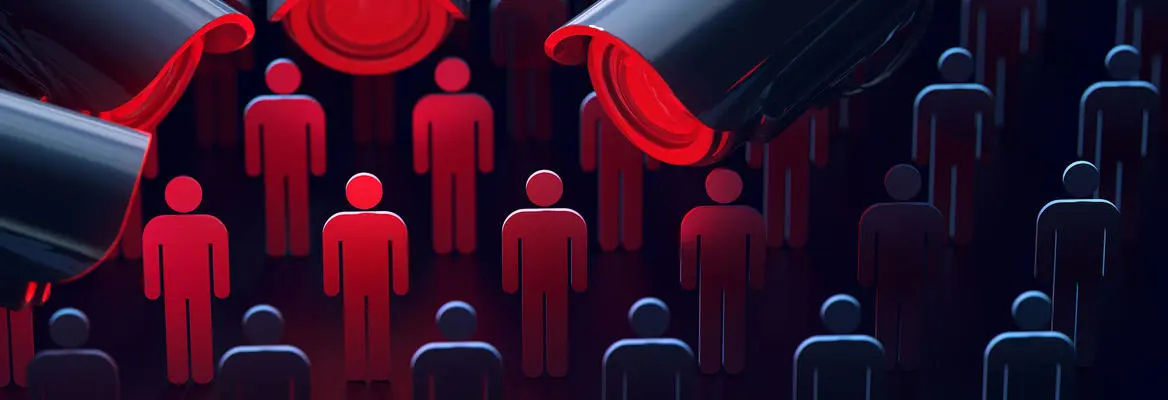There are points at which is is right for the state to intervene in the behaviour of its citizens. Amid the Covid-19 pandemic, that point was at the very start of the outbreak, when government intervention could've made a real difference. As the crisis develops, and in its aftermath, we must be alert to attempts to use this crisis as an reason to expand state influence.
 SUGGESTED READING
Groundbreaking economics at HowTheLightGetsIn
By
Plagues, wars, and other tumults of course have always been with us. Until the late 20th century, war and its equivalents did not lead to permanently bigger and more illiberal government. Not much. The U.K. after 1815 reduced state power, initiating the great age of true liberalism. Yet after a similar putting down of weapons in 1945, state power increased. In the U.S. during the War to End All Wars, President Wilson took up tyrannical powers with gusto, by for example using state propaganda to whip up anti-Hun feeling, and to suppress news of the “Spanish” Influenza.
SUGGESTED READING
Groundbreaking economics at HowTheLightGetsIn
By
Plagues, wars, and other tumults of course have always been with us. Until the late 20th century, war and its equivalents did not lead to permanently bigger and more illiberal government. Not much. The U.K. after 1815 reduced state power, initiating the great age of true liberalism. Yet after a similar putting down of weapons in 1945, state power increased. In the U.S. during the War to End All Wars, President Wilson took up tyrannical powers with gusto, by for example using state propaganda to whip up anti-Hun feeling, and to suppress news of the “Spanish” Influenza.
After 1918 the U.S. reverted to liberalism. Yet it didn’t do so after 1945. When hot war led to cold, the US War Department was renamed the Department of Defence, and the state’s grip on the American economy tightened. The Food and Drug Administration, one of several agencies (with British parables) whose malfeasance is responsible for the present lack of testing in the U.S., was from 1962 given veto power over fully one fifth of the economy. Food. Drugs. Coronavirus tests.
Even in countries without many wars to speak of, the 19th-century scribblings of economists and political philosophers have enlarged the scope of the state.
The evidence suggests, in other words, that behind the growth of government there’s something deeper, and more recent, than mere wars. The missing cause is ideas, in particular a triad of anti-liberal ideas devised in Europe during the 19th century and implemented whole-hog during the 20th century; nationalism, unrestricted majority rule, and socialism. As Keynes famously said during another equivalent of war, in 1936, “The ideas of economists and political philosophers, both when they are right and when they are wrong, are more powerful than is commonly understood. Indeed the world is ruled by little else”. Yes. In a word, they are aspects theorized statism.
In 1918, around the beginning of modern statism, the American journalist and satirist H. L. Mencken noted that “the whole aim of practical politics is to keep the populace alarmed (and hence clamorous to be led to safety) by an endless series of hobgoblins, most of them imaginary.” Mussolini, whom Churchill in the 1930s admired, put it this way: "Everything within the state, nothing outside the state, nothing against the state". For about a century the emergencies, phony ones such as private monopoly and real ones such as in the current war on Covid-19, have been justifications for more state coercion. Orbán of Hungary is using Covid-19 in the way a few years ago he used Syrian immigration and anti-Semitism. The cause is not war but ideas, in Orbán’s case the mix of nationalism with socialism we call national socialism. Even in countries without many wars to speak of, such as Latin America or Africa, the 19th-century scribblings of economists and political philosophers, right and wrong, have enlarged the scope of the state.















Join the conversation